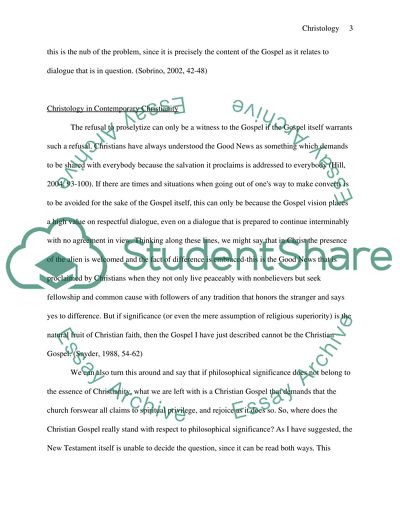Cite this document
(“Christology Essay Example | Topics and Well Written Essays - 3000 words”, n.d.)
Christology Essay Example | Topics and Well Written Essays - 3000 words. Retrieved from https://studentshare.org/miscellaneous/1522716-christology
Christology Essay Example | Topics and Well Written Essays - 3000 words. Retrieved from https://studentshare.org/miscellaneous/1522716-christology
(Christology Essay Example | Topics and Well Written Essays - 3000 Words)
Christology Essay Example | Topics and Well Written Essays - 3000 Words. https://studentshare.org/miscellaneous/1522716-christology.
Christology Essay Example | Topics and Well Written Essays - 3000 Words. https://studentshare.org/miscellaneous/1522716-christology.
“Christology Essay Example | Topics and Well Written Essays - 3000 Words”, n.d. https://studentshare.org/miscellaneous/1522716-christology.


